To hear my interview with Kari Moran for KFWB Los Angeles on Sunday, October 3rd at 3:00PM Pacific time, please click here and then click Listen Live.
Jena Osman, A VERY LARGE ARRAY : SELECTED POEMS
12 hours ago
a blog about a novel about Aristotle's daughter ~ by Annabel Lyon
 On Wednesday, September 29 at 7:00PM I'll be reading at Village Books in Bellingham, Washington. For more information, please click here.
On Wednesday, September 29 at 7:00PM I'll be reading at Village Books in Bellingham, Washington. For more information, please click here.
 On Tuesday, September 28 at 7:00PM, I'll be reading at Seattle's Elliott Bay Book Company. For more information, please click here.
On Tuesday, September 28 at 7:00PM, I'll be reading at Seattle's Elliott Bay Book Company. For more information, please click here.
 "[H]ere we have a novel that is brave enough to raise the universal questions about how a man should live his life; that describes with amazing authority the flaws and growth of one of our greatest philosophers as well as his famous student, who, literally, seems to “swallow the world” before his death at age 32; and that, with luck, may send some of us back to the original texts that still shine with so much intelligence and wisdom."
"[H]ere we have a novel that is brave enough to raise the universal questions about how a man should live his life; that describes with amazing authority the flaws and growth of one of our greatest philosophers as well as his famous student, who, literally, seems to “swallow the world” before his death at age 32; and that, with luck, may send some of us back to the original texts that still shine with so much intelligence and wisdom." On Monday, September 27th at 2:00PM, I'll be reading from The Golden Mean at Douglas College, Room 3406, New Westminster campus. This event is free and open to the public. For more information, please click here.
On Monday, September 27th at 2:00PM, I'll be reading from The Golden Mean at Douglas College, Room 3406, New Westminster campus. This event is free and open to the public. For more information, please click here.
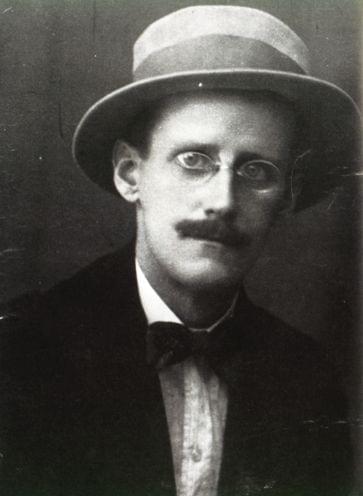
 The Greek term "eudaimonia" is occasionally translated as "happiness", though a more Aristotelian understanding of the term would be "human flourishing", or a complete human life. In Upheavals of Thought: The Intelligence of Emotions, the American scholar Martha Nussbaum points out that in English the word has tended to associate the supreme good with happiness or pleasure, whereas the ancient Greek concept is "compatible with as many distinct conceptions of what that good is as one cares to propose". Further, "A conception of eudaimonia is taken to be inclusive of all to which the agent ascribes intrinsic value: if one can show someone that she has omitted something without which she would not think her life complete, then that is a sufficient argument for the addition of the item in question" (32-33).
The Greek term "eudaimonia" is occasionally translated as "happiness", though a more Aristotelian understanding of the term would be "human flourishing", or a complete human life. In Upheavals of Thought: The Intelligence of Emotions, the American scholar Martha Nussbaum points out that in English the word has tended to associate the supreme good with happiness or pleasure, whereas the ancient Greek concept is "compatible with as many distinct conceptions of what that good is as one cares to propose". Further, "A conception of eudaimonia is taken to be inclusive of all to which the agent ascribes intrinsic value: if one can show someone that she has omitted something without which she would not think her life complete, then that is a sufficient argument for the addition of the item in question" (32-33). According to Yahoo!, Greek archeologists have uncovered 37 tombs dating back to the iron age near the ancient city of Pella. "The tombs contain iron swords, spears and daggers, plus vases, pottery and jewellery made of gold, silver and iron." This bronze helmet and gold mouth protector were amongst the finds. To read the full article, please click here.
According to Yahoo!, Greek archeologists have uncovered 37 tombs dating back to the iron age near the ancient city of Pella. "The tombs contain iron swords, spears and daggers, plus vases, pottery and jewellery made of gold, silver and iron." This bronze helmet and gold mouth protector were amongst the finds. To read the full article, please click here.
 On Thursday, September 16 at 7:00PM, it's my privilege to be taking part in the Robson Reading Series with Naomi Beth Wakan (Book Ends: A Year Between The Covers). Free admission! Refreshments! Book purchase and signing! For more information, please click here.
On Thursday, September 16 at 7:00PM, it's my privilege to be taking part in the Robson Reading Series with Naomi Beth Wakan (Book Ends: A Year Between The Covers). Free admission! Refreshments! Book purchase and signing! For more information, please click here.


 Under the headline What's Hot: The Golden Mean: "Lyon draws the curtain back on the smoke-filled huts and palace chambers that shaped the lives of these two great men, whose mutual admiration and intellect transformed civilization. It's historical fiction at its finest."
Under the headline What's Hot: The Golden Mean: "Lyon draws the curtain back on the smoke-filled huts and palace chambers that shaped the lives of these two great men, whose mutual admiration and intellect transformed civilization. It's historical fiction at its finest." "The music I returned to again and again while writing the novel (with one or two blessed exceptions) tended to reflect back the harshness and fear and loneliness I was writing about. Bleak beauty; vibrant darkness. And a bit of Beach Boys."
"The music I returned to again and again while writing the novel (with one or two blessed exceptions) tended to reflect back the harshness and fear and loneliness I was writing about. Bleak beauty; vibrant darkness. And a bit of Beach Boys."
 "Ancient Greece, in all its gusto, gore, and glory, springs vividly to life in Lyon's pitch-perfect paean to Aristotle and Alexander the Great."
"Ancient Greece, in all its gusto, gore, and glory, springs vividly to life in Lyon's pitch-perfect paean to Aristotle and Alexander the Great." "The best books are not necessarily those with dazzling prose or mind-numbing theories. The best books are those that steal up on you, and lead you gently into a world made real, not by an abundance of detail, but by honestly rendered characters that, from the very first page, so completely captivate that before you know it, you’ve read half the book and there are but a few hours until dawn. That is, the best books understand the allure – our insatisfiable longing to compare and contrast our minds with others – of interesting characters. Annabel Lyon’s The Golden Mean is such a book, and her accomplishment – the surprising irresistibility of her story – is all the more incredible when you consider that she’s chosen to focus on rather prosaic moments in a great man’s life."
"The best books are not necessarily those with dazzling prose or mind-numbing theories. The best books are those that steal up on you, and lead you gently into a world made real, not by an abundance of detail, but by honestly rendered characters that, from the very first page, so completely captivate that before you know it, you’ve read half the book and there are but a few hours until dawn. That is, the best books understand the allure – our insatisfiable longing to compare and contrast our minds with others – of interesting characters. Annabel Lyon’s The Golden Mean is such a book, and her accomplishment – the surprising irresistibility of her story – is all the more incredible when you consider that she’s chosen to focus on rather prosaic moments in a great man’s life." The Golden Mean is now available in the United States from Knopf. Welcome, American readers! Please check back from time to time for information on my upcoming readings (including at the Elliott Bay Book Company in Seattle, Village Books in Bellingham, and the Wordstock Festival in Portland) as well as information on the writing of the novel, research tidbits, and more.
The Golden Mean is now available in the United States from Knopf. Welcome, American readers! Please check back from time to time for information on my upcoming readings (including at the Elliott Bay Book Company in Seattle, Village Books in Bellingham, and the Wordstock Festival in Portland) as well as information on the writing of the novel, research tidbits, and more.
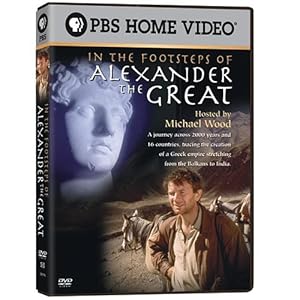 In 1997, the boyish English historian Michael Wood, dubbed the "thinking woman's crumpet" by the British media, made a TV documentary called In the Footsteps of Alexander the Great. (There's an accompanying book by the same name). I'm not sure about the crumpet part, but the four-part series is a fascinating recreation of Alexander's epic Eastward journey, from Macedonia to Persia, Egypt, Babylon, Afghanistan, India, and part-way home. Wood wades chest-deep through the sea to get around rocky headlands where Alexander's troops would have done the same, chats with locals as though Alexander passed through the day before yesterday, compares ancient and modern military maps, and encounters in country after country variations on the rumour that Alexander had horns (and killed all his barbers to keep the secret). Utterly entertaining and not hard to find (I borrowed it from the Vancouver Public Library).
In 1997, the boyish English historian Michael Wood, dubbed the "thinking woman's crumpet" by the British media, made a TV documentary called In the Footsteps of Alexander the Great. (There's an accompanying book by the same name). I'm not sure about the crumpet part, but the four-part series is a fascinating recreation of Alexander's epic Eastward journey, from Macedonia to Persia, Egypt, Babylon, Afghanistan, India, and part-way home. Wood wades chest-deep through the sea to get around rocky headlands where Alexander's troops would have done the same, chats with locals as though Alexander passed through the day before yesterday, compares ancient and modern military maps, and encounters in country after country variations on the rumour that Alexander had horns (and killed all his barbers to keep the secret). Utterly entertaining and not hard to find (I borrowed it from the Vancouver Public Library).
 The honour, the honour! Dan Wilbur gives The Golden Mean the "better book title" treatment. You can visit the whole site by clicking here.
The honour, the honour! Dan Wilbur gives The Golden Mean the "better book title" treatment. You can visit the whole site by clicking here.
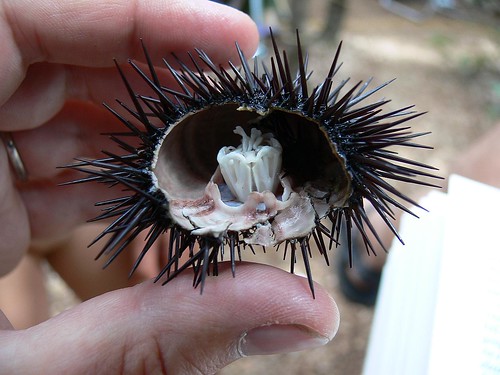
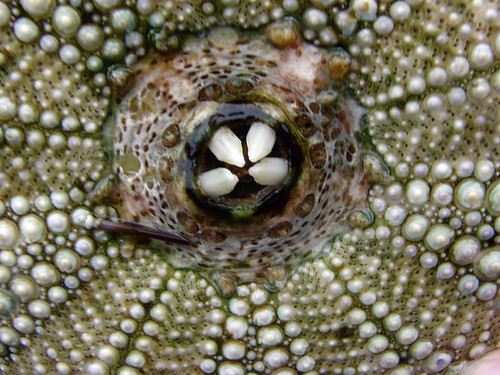
 "With her sensuous prose, rich imagery and meticulous attention to detail, Lyon has brushed the cobwebs of ages from two of history's most charismatic characters and brought them gloriously to life."
"With her sensuous prose, rich imagery and meticulous attention to detail, Lyon has brushed the cobwebs of ages from two of history's most charismatic characters and brought them gloriously to life." I'm so pleased that The Golden Mean has made Amazon.com's Best of the Month list for September 2010. For more information, please click here.
I'm so pleased that The Golden Mean has made Amazon.com's Best of the Month list for September 2010. For more information, please click here.
 If you are an online subscriber to Kirkus Reviews, you can read the full review of The Golden Mean by clicking here.
If you are an online subscriber to Kirkus Reviews, you can read the full review of The Golden Mean by clicking here.
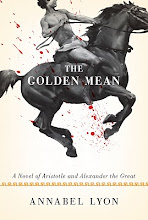
An exhilarating book, both brilliant and profound. Annabel Lyon’s spare, fluid, utterly convincing prose pulls us headlong into Aristotle’s original mind. Only Lyon’s great-hearted intelligence could have imagined and achieved the brave ambition of this book. Vital, ferocious and true, The Golden Mean is an oracular vision of the past made present.
--Marina Endicott, author of Good to a Fault
In Lyon’s clever hands, more than two thousand years of difference are made to disappear and Aristotle feels as real and accessible as the man next door. With this powerful, readable act of the imagination, Annabel Lyon proves that she can go anywhere it pleases her to go.